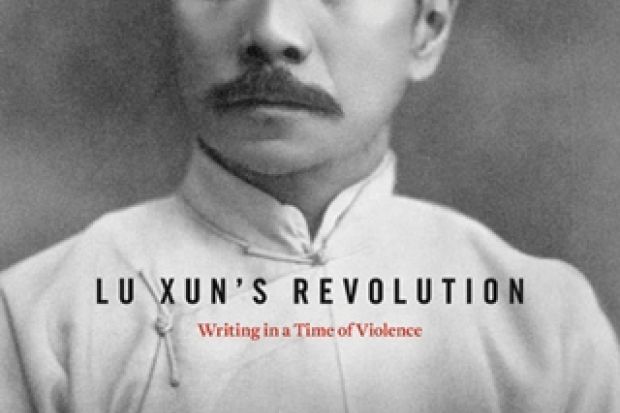In the period covered by this work, roughly 19 to 1936, the word “revolution” was used in China by both Nationalists and Communists with great frequency: as proper nouns (the former’s National Revolutionary Army), as organisational structures (the latter’s Leninist revolutionary vanguard) and in many slogans. Cultural movements were equally fond of the word. In the 1910s, the new elite repudiated the classical tradition and called for a literary revolution. Later, leftist writers reversed the two words and called for revolutionary literature.
Among these competing uses of “revolution”, its appearance in the title of Gloria Davies’ book is perhaps best understood as parallel to a phrase such as “my war”, calling up a picture of one individual’s experience in large, complex events. This seems to be the author’s intent: following Davies, we watch the writer Lu Xun (1881-1936) choose his words carefully to express ideas that were bound to be seized on, for one reason or another, by one group or another.
It was not surprising that his words were so closely watched. His fiction, supplemented by essays, had been the first to give to readers in a transitional China an understanding of themselves. They were none the less welcome for their bracing and critical nature, and they brought him a following that made him the pre-eminent literary figure in a pioneering generation.
In the final decade of Lu Xun’s life, which is the subject of this book, accelerating extremism made voicing any political stance complicated: tricky for him to articulate and for his readers to follow - and for any scholar to treat. Examining these writings is an intellectual challenge worthy of admiration, and its difficulty is amplified by the fact that in this period Lu Xun’s writings consisted only of essays: he had ceased to write the fiction central to his reputation. Perhaps for this reason, until now there has been no book-length study in English of the essays or - amounting to nearly the same thing - of “the later Lu Xun”.
We can see Davies’ work as dealing with a period in which the writer had achieved his great eminence and, in constantly changing circumstances, was undertaking serious experiments in how to continue his engagement with China’s fate. Her analyses of the writings cover a large number of topics, and in each chapter she pursues many threads. To give the reader a flavour of her scope, chapter 3, for example, touches on the Nationalists’ “revolutionary doctrine”, the Russian writers Sergei Esenin and Andrei Sobol, the motif of children’s innocence, the periodical Thread of Talk, the Beixin publishing company and the best-selling writer Jiang Guangci. Each requires, as Davies says, “substantial contextualization”, which means that there are necessarily many nutshell histories of incidents, personalities, political developments and more. Thumbnail sketches make good reading but much of the material considered here is chiefly of interest to readers already well acquainted with the period.
Davies’ study shows how far we still are, despite decades of “Luxunology”, from an abundance of intellectual approaches to extended analysis of these essays. It also raises the larger question of whether the essays as a whole can be made of interest without overburdening them with explanation. (Isolated essays have always received critical attention.)
Certain editorial decisions make this work difficult to use. This is a pity, as a groundbreaking work is meant to be used as well as read. While there are endnotes, the decision not to list “works cited” is regrettable. Essay titles are given in English only and are not indexed. They are listed, but only under the year of publication in an 18-page “Guide and Chronology”, which hardly counts as accessible. Such corner-cutting by a prestigious press is worrying for the future of academic publishing.
Lu Xun’s Revolution: Writing in a Time of Violence
By Gloria Davies
Harvard University Press, 448pp, £24.95
ISBN 9780674072640 and 73944 (e-book)
Published 25 April 2013
Register to continue
Why register?
- Registration is free and only takes a moment
- Once registered, you can read 3 articles a month
- Sign up for our newsletter
Subscribe
Or subscribe for unlimited access to:
- Unlimited access to news, views, insights & reviews
- Digital editions
- Digital access to THE’s university and college rankings analysis
Already registered or a current subscriber?




